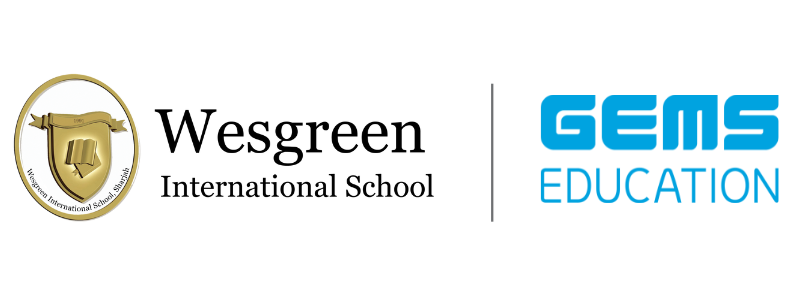FS2 - PHYSICAL DEVELOPMENT COURSE SYLLABUS
Course Outline
Overview
Physical Development comes under the prime area of the Early Years Foundation Stage. The PD syllabus at GEMS Wesgreen International Primary School aims to support students to develop their movement, handling of objects, understanding of their own body and health and levels of self-care.
Learning Outcomes
The aims of all subjects state what a teacher may expect to teach and what a student may expect to experience and learn. These aims suggest how the student may be changed by the learning experience.
The aims of the PD Syllabus is to encourage and enable students to:
- Demonstrate spatial awareness
- Able to find a space
- Follow instructions
- Develop fine motor skills
- Write patterns
- Observe effects of activity on our bodies
- Use tools safely
- Wash and dry hands
- Washing and brushing teeth
- Try a range of different foods
- Travel with confidence and skill around, under, over and through balancing and climbing equipment
- Use simple tools to effect changes to materials
- Begin to use anticlockwise movement and retrace vertical lines
- To form recognisable letters
- Dress and undress independently
- Show some understanding that good practices with regard to exercise, eating, sleeping and hygiene can contribute to good health
- Show understanding of the need for safety when tackling new challenges, and considers and manages some risks
- Eat a healthy range of foodstuffs and understands need for variety in food
- Practices some appropriate safety measures without direct supervision
Ongoing Objectives
There are objectives that are covered and built upon throughout the year during daily interactions in the classroom and when accessing the continuous provision.
Moving and handling
- Experiments with different ways of moving
- Jumps off an object and lands appropriately
- Negotiates space successfully when playing racing and chasing games with other children, adjusting speed or changing direction to avoid obstacles
- Travels with confidence and skill around, under, over and through balancing and climbing equipment
- Shows increasing control over an object in pushing, patting, throwing, catching or kicking
- Uses simple tools to effect changes to materials
- Handles tools, objects, construction and malleable materials safely and with increasing control
- Shows a preference for a dominant hand
- Begins to use anticlockwise movement and retrace vertical lines
- Begins to form recognisable letters
- Uses a pencil and holds it effectively to form recognisable letters, most of which are correctly formed
- Children show good control and co-ordination in large and small movements. They move confidently in a range of ways, safely negotiating space. They handle equipment and tools effectively, including pencils for writing.
Health and self-care
- Eats a healthy range of foodstuffs and understands need for variety in food
- Usually dry and clean during the day
- Shows some understanding that good practices with regard to exercise, eating, sleeping and hygiene can contribute to good health
- Shows understanding of the need for safety when tackling new challenges, and considers and manages some risks
- Shows understanding of how to transport and store equipment safely
- Practices some appropriate safety measures without direct supervision
- Children know the importance for good health of physical exercise, and a healthy diet, and talk about ways to keep healthy and safe
- They manage their own basic hygiene and personal needs successfully, including dressing and going to the toilet independently
Assessment
Formative: Throughout the units, the children will be observed daily during their focus and continuous provision activities. The observations will help inform next steps and planning.
Summative: At the end of each term we complete internal and standardized tests. This allows us to measure the students’ progress throughout the term and year. At the end of the academic year, the students complete the EYFS profile.


